Developmental Delays in Children – Types & Ways to Deal With It

Childhood is a period of significant growth and development, and not reaching specific milestones within certain time frames is what’s dubbed as developmental delay in children. Manifesting in both minor and major forms—developmental delays often lead to a noticeable lack of growth spurts in children, impacting their overall progress. The first three years of a child’s life are especially formative, shaping their future growth and abilities. When developmental delays occur, it can result in them falling behind their peers, struggling to keep up in various aspects. Early identification and intervention are crucial to addressing developmental delay in children and ensuring they receive the support they need to thrive.
What Is Developmental Delay?
Here’s the developmental delay definition. Developmental delay refers to a condition where a child does not reach developmental milestones—such as walking, talking, or social skills—at the expected age ranges, indicating slower progress compared to peers (1). This delay can affect one or more areas, including motor skills, speech and language, cognitive abilities, or social-emotional development, and may result from genetic factors, prenatal conditions, or environmental influences. Early identification and intervention are crucial, as developmental delay in children can impact long-term learning and growth if left unaddressed. While some children may catch up over time, others may require ongoing support, making professional evaluation essential for proper guidance and therapy.
Can Your Child Have Developmental Problems?
Yes! If your child falls behind his peer in terms of social development and fine motor skills, then that’s merely a phase and not a developmental delay. It can be frustrating as a parent to watch your child experience difficulty learning new things, coordinating actions, and interacting with their peers. This is why it’s important to be aware of common developmental problems and how they occur in children.
Chances of Your Child Having a Developmental Delay
The chances of your kid developing developmental delays depend on several risk factors such as:
- Genetic and chromosomal disorders like Down Syndrome
- Being exposed to life-threatening environmental pollutants and toxic agents
- Malnutrition or lack of a nutritional diet
- Infections
- Lack of hygiene, care, and prematurity
All the above factors have a cumulative effect on developmental delays in children and contribute to increased chances of delays when overlooked over time. Living healthy, exercising, and taking care of yourself can improve the chances of a healthy delivery and reduce risk factors of manifesting various developmental delays.
Difference Between Developmental Delays and Developmental Disability
A developmental delay is temporary while a developmental disability is permanent. Developmental delays can be treated with the right medications, therapies, educational intervention, and early treatment options. Developmental disabilities, on the other hand, cannot be treated and a child may require special education throughout their life. Developmental disabilities can originate due to genetic disorders, overdosing on certain medications, brain injury, and pregnancy complications which is why it’s fundamentally essential to take care of yourself, both emotionally and physically, before considering opting for pregnancy or birth.
What Are the Developmental Delays in Kids?
Development delays range from cognitive, emotional, and fine motor skills and are classified by specific milestones such as giving her first smile, taking the first step, and identifying certain behavioural patterns in children according to their age groups. Children develop at their own pace as they grow, but there are specific telltale signs one can watch out for to spot developmental delays and get a general idea of where they are.
There are several types of developmental delay. Common development delays in children are noted by looking out if your child is able to perform the following things:
- Showing signs such as certain words and gestures for identifying parents
- Showing affection towards friends and caregivers
- Being able to sit without leaning
- Walking up the stairs without help
- Scribbling with pencils, crayons, and sketch pens
- Knowing how to use everyday objects like spoons, forks, and toothbrushes
- Understanding basic words and responding when saying no and other commands
- Expressing vivid emotions like happiness, anger, joy, and frustration through facial expressions and sounds
Other forms of developmental delays in children include visual development delay, language and speech development delay, gross motor skill development delay, social and emotional developmental delay, and cognitive developmental delay. Let’s take a look at them below.
Vision Developmental Delay
Blurry vision is the hallmark of development during the first six months for babies. Anything beyond that is a misnomer. If your child has trouble coordinating eye muscle movement in both her eyes, continues experiencing blurry vision after six months, or doesn’t notice her arms after two months of visual development, then it’s time to be concerned (2).
1. Causes
Common causes of vision development delays in children are:
- Refractive errors like nearsightedness and farsightedness
- Amblyopia, or lazy eye syndrome which involves having poor vision in one eye
- Infantile cataracts which cloud the infant’s lenses
- The eye disease ‘Retinopathy of Prematurity.’
- Cross-eye syndrome or Strabismus
2. Treatment
Treatment solutions for the above vision developmental delays include:
- Special optic lenses/glasses
- Surgeries
- Using eye patches
3. Warning Signs
There are several warning signs of vision developmental delays in children. If your child faces any of the following problems, contact a doctor immediately:
- Blurry vision (after six months)
- Eyes cannot follow moving objects
- Uncoordinated eye muscle movement
- Frequent crossing of the eyes
- Eyes turning in and out (beyond the six-month time frame)
- Tearing up frequently
- Cannot follow nearby or faraway objects (between one foot to six feet away)
Language and Speech Developmental Delay
Language delay is when the child is not able to deliver words that make proper sense, while speech development delays pronunciation. Language is more connected to comprehension, and speech delays have more to do with the meaning than the sounds. Speech delays are sound-related problems in children. Speech and language delays combine the two and can result in stunted verbal development (3).
1. Causes
There are various causes of language and speech developmental delay. Hearing loss may often be associated with them which could be the underlying reason why your child may not have been able to pick up or comprehend word meanings in the first place Common causes are:
- Lack of exposure to a speaking environment, hence no language/speech learning
- Prematurity
- Intellectual Disability (related to Down Syndrome, Fragile X Syndrome, genetic defects, and fetal alcohol syndrome)
- Brain injury or trauma
- Autism
- Apraxia of speech, a disorder where a child has difficulty sequencing and executing speech movements
- Selective Mutism, where a child simply does not talk in all situations
2. Treatment
Common treatment options for speech and language developmental delays involve taking your child to an occupational therapist, social worker, speech-language pathologist, or an audiologist. Here are the following natural treatment options for language and speech developmental delays in children:
- Talking to your newborn before birth
- Responding to a baby’s coos
- Reading aloud books and telling stories
- Describing to your child the actions they are doing throughout the day
- Use gestures while speaking to your child
- Play word games with your child or fun games involving sentence structuring and speaking
3. Warning Signs
If you fear that your child is facing language and speech developmental delay, here are the following signs:
- Not being able to say ‘Mama’ and ‘Papa’ after a certain time frame
- Unresponsive to calls or doesn’t react when called her name
- Doesn’t understand simple instructions and cannot identify different parts of the body when called their names
- Lack of vocabulary development
Motor Skill Developmental Delay
Motor skill developmental delays in children are linked to gross motor skills, fine motor movements, and motions like walking, crawling, picking a spoon or drinking from a sippy cup. When your child experiences motor skill developmental delay, she has difficulty coordinating certain movements, picking up crayons, drawing pictures, walking and running, and similar physical activities that require the brain and hand coordination (4).
1. Causes
The possible causes of developmental motor delays in children are:
- Prematurity
- Brain Injury
- Cerebral Palsy
- Ataxia, a condition which causes defective muscle coordination
- Myopathy
- Vision problems
- Spina Bifida, a genetic condition which causes partial/complete paralysis of the spinal region of the body
2. Treatment
Treatment types range from incorporating long-term exercise plans to regular therapy. The type of treatment your child needs may be described by the doctor. Certain treatment types help with sensory integration dysfunction and in developing gross motor skills through occupational therapy.
3. Warning Signs
If you notice any of the common warning signs or red flags in your child’s motor skills, contact your doctor immediately:
- Cannot grasp or pick up objects
- Cannot support her head properly
- Cannot bring objects her mouth
- Does not push down legs for moving when her body is firmly planted on the ground
Social and Emotional Developmental Delay
Social and emotional developmental delays affect how the child perceives the world which causes them to react differently than other children when exposed to the same environmental stimuli. These delays can affect a child’s ability to learn, communicate, and interact with other children and adults (5).
1. Causes
The most common causes of social and emotional developmental delays in children are:
- Child abuse or trauma
- Brain injury
- Learning disabilities like Dyslexia, Dysgraphia, and Dyscalculia
- Loss of hearing due to genetic disorders and infections
- Impaired communication and interaction skills related to Autism Spectrum Disorders
2. Treatment
Working with a good occupational, speech, or social developmental delay specialist can help your child. Treatment methods involve speaking with your child, helping them understand social and emotional cues, and supplementing their treatment with certain prescribed medications for dealing with emotional and behavioural problems like ADHD, anxiety, depression, mood swings, and sudden bouts of anger. Letting your child listen to music can also during treatments.
3. Warning Signs
If you notice any of the common warning signs or red flags in your child’s motor skills, contact your doctor immediately:
- Not being able to keep good eye contact
- Does not show interest in other children
- Lack of interest in communication
- Stagnant or stuttered speech, difficulty expressing sequences of words
- Cannot understand the child’s speech
- Cries a lot and cannot stay apart from parents for brief periods of time
- Does not show a wide range of emotions or responds to strangers
- Lack of interest in playing with other children
Cognitive Developmental Delay
Cognitive developmental delays interfere with a child’s learning ability and hamper their cognitive development. Difficulty in communication, not being able to interact with others, and problems associated with playing or engaging with others are few of the issues related to cognitive developmental delays (6).
1. Causes
The most common causes of cognitive developmental delays are:
- Different learning disabilities related to reading, writing, and other learning skills
- Lead poisoning
- Exposure to alcohol or harmful toxins before or after birth
- Neglect or institutionalization since early childhood
- Down Syndrome
- Autism Spectrum Disorders
- Newborn medical complications
- Other unknown causes
2. Treatment
If you feel something is wrong with your child, then consulting with a doctor and an occupational therapist can help. Usually, doctors will recommend a specialist who can get to the core of the situation. Common treatment methods are:
- Behavioural and occupational therapy
- Special education
- Prescribed medications which can help with behavioural problems, mood swings, and short attention spans
3. Warning Signs
Common warning signs of cognitive developmental delays in children are:
- Cannot copy a circle or basic shapes
- Cannot understand simple instructions
- Doesn’t enjoy playing with toys or other children
- Does not point to pictures or common household objects
- Does not imitate gestures or words
- Cannot concentrate on one activity for more than 5 minutes by the age of five
Diagnosis
The developmental delay diagnostic process involves structured assessments by healthcare professionals to evaluate a child’s development across key areas. Below are the key steps in diagnosing developmental delays in children (7).
1. Developmental Screening
Developmental screening is a preliminary check to determine if a child is meeting age-appropriate milestones. Pediatricians often conduct these brief assessments during routine check-ups. If concerns arise, further evaluation is recommended.
2. Comprehensive Developmental Evaluation
If screening indicates potential delays, a developmental evaluation is performed by specialists such as pediatric neurologists, psychologists, or occupational therapists. This in-depth assessment examines cognitive, motor, social-emotional, and speech-language skills to pinpoint delays.
3. Professional Assessments by Certified Specialists
Certified professionals, including occupational therapists and speech-language pathologists, conduct targeted tests to assess a child’s abilities. These evaluations help determine the severity of delays and guide intervention strategies.
4. Parent and Caregiver Input
Doctors rely on observations from parents and caregivers about a child’s behavior, communication, and motor skills. Input from family members helps professionals understand the child’s development in real-life settings.
5. Ongoing Monitoring and Follow-Up
Since development is continuous, children with delays require regular follow-ups to track progress. Adjustments to therapy or early intervention programs may be made based on the child’s evolving needs.
What Are the Risk Factors for Developmental Delays?
Children with developmental delays often fall behind their peers in classroom settings and paced activities. Your child may have difficulty communicating with other children, learning new skills, and thus, go through a hampered learning experience. Developmental delays aren’t permanent, and as the name suggests, they are only delays and last a certain period. With the right form of therapy, treatments, and doctor-prescribed medications, your child’s developmental delay can be greatly diminished. Keep in mind that every child grows at a different pace hence, skill acquisition and growth rates are different in all these areas. The only true way to assess whether something is wrong is by looking out for common developmental milestones and warning signs to ensure whether or not your child is right on track.
Ways to Deal With Developmental Delay in Kids
Supporting a child with developmental delays requires patience and the right strategies. Here’s how to help a child with developmental delay:
- Enroll in early intervention programs
- Keep a structured daily routine
- Use speech therapy if needed
- Try occupational therapy for motor skills
- Consider physical therapy for movement
- Give praise and rewards for progress
- Practice social skills through play
- Get school support with an IEP (Individualized Education Program)
- Stay involved and learn therapy techniques
- Ensure good nutrition and sleep
- Use sensory toys for comfort
- Seek counseling for emotional needs
When Should You Call the Doctor?
You should call your doctor anytime you notice any of the above red flags or common warning signs of developmental delays. If your child is behaving out of the ordinary or not according to what is expected of his age group, then it’s time to consider running a diagnostic test at a hospital or a doctor’s clinic. Problems related to facing difficulty in understanding, being quiet for more than 15 months, no signs of movement or gestures, or a lack of interest in communicating with you and other children all translate to signs of developmental delays and require a doctor’s opinion for further evaluation, screening, and treatment.
FAQs
1. Can screen time cause or worsen developmental delays in children?
While excessive screen time doesn’t directly cause developmental delays, it may contribute to speech or social delays if it replaces interactive play and conversation. Moderation and engaging content are key.
2. Do developmental delays always mean a lifelong disability?
Not always—some children catch up with early intervention, while others may need ongoing support. Delays can be temporary, but professional evaluation is crucial for the right guidance.
Developmental delays can be linked to harmful exposure to toxins before birth and brain injury. To eliminate chances of developmental delay before birth, taking care of yourself and administering a diet rich in vitamins, minerals, and nutritious foods can reduce risk factors.
Speaking to your child, giving them love and attention, and rewarding them with smiles, gestures, and warm emotions can make a difference in significantly reducing the risk of developmental delays. Your child can understand even before birth signs of language and gestures on a subconscious level which is why it’s important to constantly and consistently interact with them and be patient throughout the pregnancy and early parenthood phase.
We hope we have answered all your questions, including ‘What are some of the causes of developmental delays?’ Developmental delays can be treated and carrying out educational intervention, and early therapies can greatly reduce the risk factor. Child doctors or specialists are well-versed with developmental delays, and even if your child isn’t showing any signs of delays yet, it’s better to get them assessed early on or incorporate activities suggested by doctors to improve the early treatment phase.
References/Resources:
1. National Library of Medicine – Developmental Delay
3. Nemours Kids Health – Delayed Speech or Language Development
4. American Academy of Pediatrics – Is Your Baby’s Physical Development on Track?
6. Montana DPHHS – Cognitive Delay
7. Cleveland Clinic – Developmental Delay in Children
Also Read:
Dyslexia in Kids
ADHD in Children
Slow Learner Child
Hyperlexia in Children
Listening Activities, Games and Exercises for Kids
Was This Article Helpful?
Parenting is a huge responsibility, for you as a caregiver, but also for us as a parenting content platform. We understand that and take our responsibility of creating credible content seriously. FirstCry Parenting articles are written and published only after extensive research using factually sound references to deliver quality content that is accurate, validated by experts, and completely reliable. To understand how we go about creating content that is credible, read our editorial policy here.






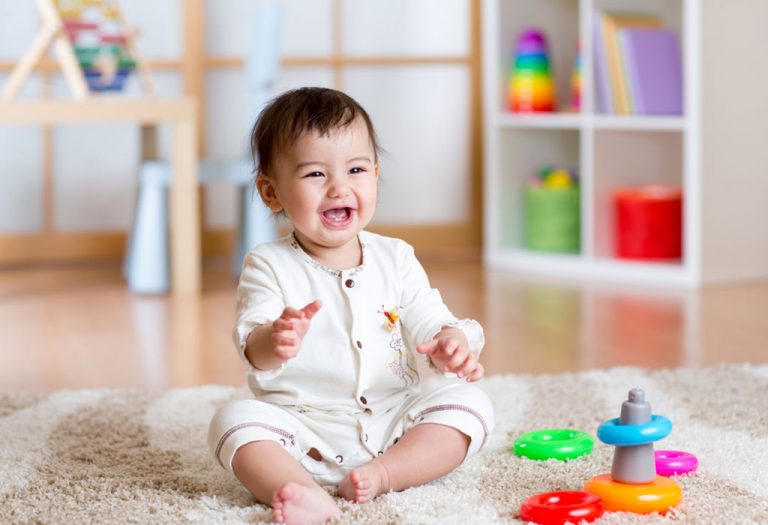








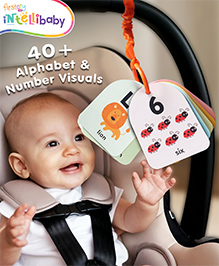





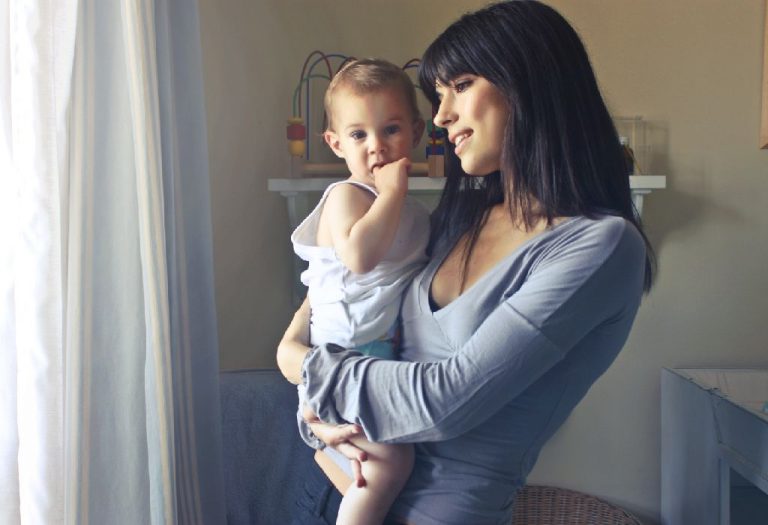


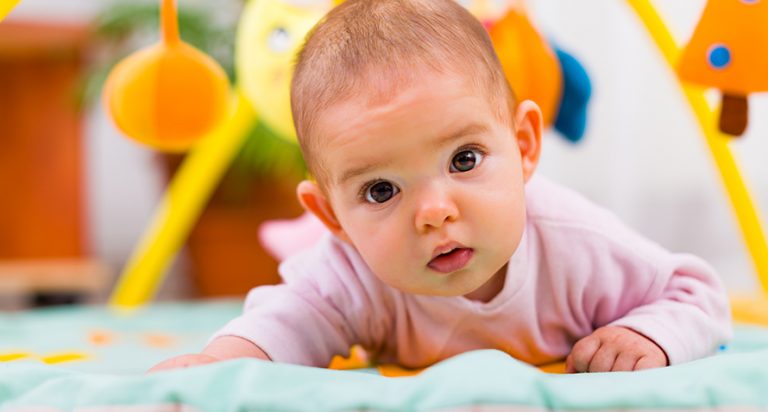
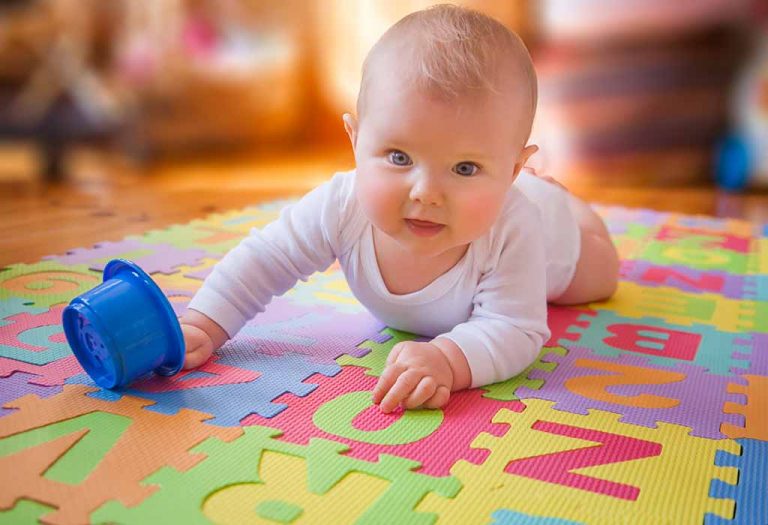
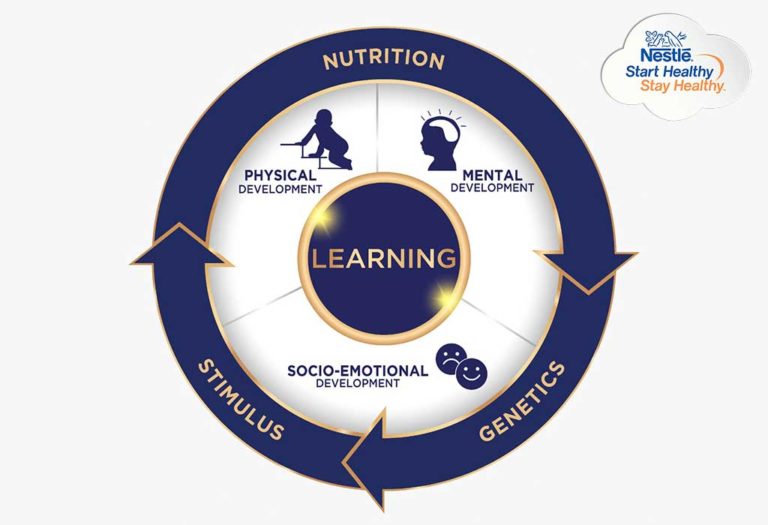

.svg)


















